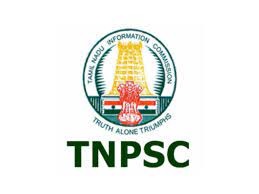TNPSC Social Case Work Expert Exam Syllabus
Organisation : Tamil Nadu Public Service Commission (TNPSC)
Exam Name : TNPSC Social Case Work Expert Exam
Announcement : TNPSC Social Case Work Expert Syllabus
Website : https://www.tnpsc.gov.in/English/new_syllabus.html
What is TNPSC Social Case Work Expert Exam?
TNPSC Social Case Work Expert Exam is organised by Tamil Nadu Public Service Commission. A post graduate degree in social work or social service or social science or Criminology or Sociology or Andragogy. The selection will be made in two stages, viz. (i) Written Examination and (ii) an Oral Test in the form of an Interview.

Syllabus For TNPSC Social Case Work Expert Exam
The Syllabus For TNPSC Social Case Work Expert Exam are given below,
UNIT – I
Social Work – Definition and Meaning, Basic Concepts – Social Service, Social
Development, Social Change, Social Welfare and Social Security; Historical background
of Social Work in India, Contributions of Mahatma Gandhi to Constructive Social Work,
Social Reform Movements, Social Work Profession – Definition and Meaning;
Philosophy – Values, Beliefs and Principals, Goals and Functions. Methods of Social
Work- Case Work, Group Work, Community Organisation and Social Action, Social
Work Research and Statistics, Social Work Administration.
UNIT – II
Application and Approaches of Social Work in different Settings: Field Work as an
integral component of Social Work Training, Fields of Social Work – Community
Development (rural, urban, tribal), Medical and Psychiatric Social Work, Family and
Child Welfare, Correctional Social Work, Social Work with Senior Citizens, Human
Rights and Social Work, Youth and Social Work, Approaches in Social Work Practice:
Remedial, Preventive, Promotive and Rehabilitative approaches; welfare,
developmental, rights based and participatory approaches, Skills and techniques
required for a Social Worker.
SOCIAL SERVICE
UNIT – III
SOCIAL WORK: Concept of Social Welfare, Social Service and Social Work. Social
Welfare: Definition and Objectives. Social Service: Definition and Scope. Social Work:
Definition, Values and Principles – Purpose – Fields and Methods – Code of Ethics and
Social workers – Skills and Roles.
Social Case Work Counselling: Definition – Purpose, Principles – Process (Intake,
Study, Treatment, Evaluation, Termination) – Role and Skills – Recording in Case Work
(Genogram and Eco-Map) – Counselling: Definition, Process – Interviewing, Effective
Listening, Assessment, Empathy, Problem solving – Therapeutic Techniques:
Psychoanalysis, Person-centered, Transaction Analysis, Cognitive Behavior Therapy
Social Group Work: Definition – Purpose – Principles – Stages of Group Development
(Forming, Norming, Storming, Performing) – Group Dynamics (Sub-Groups, Isolation,
Rejection, Scape Goating, Group Think) – Process of Group Work (Beginning, Middle
and Termination).
Social Research: Definition – Objectives – scope – Approaches (Quantitative and
Qualitative) – Research Process: Research Formulation – Review of Literature –
Hypothesis – Sampling (Probability and non-Probability Methods) – Methods of Data
Collection (Interview, Focus Group Discussion) – Analysis and Reporting
UNIT – IV
SOCIAL WELFARE: Social Welfare Administration: Definition – Objectives – Principles
– General Administration (Staffing, Supervision, Office Management, Public Relations,
Record Maintenance, Infrastructure) – Financial Administration (Budgeting, Fund
Raising, Accounting and Auditing, Annual Report).
Correctional Administration: Prison: Purpose of imprisonment- Psycho Social Impact of
Imprisonment – Role of Social Worker: Welfare Activities – Education – Vocational
Training – Recreation – Counselling – Rehabilitation – Probation – Parole – After Care
Services. Children in Conflict with Law (Juvenile Delinquent): Definition – Causes –
Juvenile Justice System – Observation Homes – Juvenile Homes – Rehabilitation –
Child Welfare Committee.
Human Rights: Definition – Universal Declaration of Human Rights – Indian Constitution
(Fundamental Rights and Directive Principles of State Policy) – International
Conventions – UN Commission for Human Rights – National and State Commission for
Human Rights.
NGOs: Definition, Objectives and Scope – Types (NGO, NPO, INGO, CBO), Activities
(Service Delivery, Relief, Rehabilitation, Capacity – Building, Advocacy) – Advantages
and Limitations of NGOs. Target Groups: Families, Children, Youth, Elderly, Mentally ill,
Disabled, Women, Dalits, Tribal Persons, Chronically ill.

SOCIAL SCIENCE
UNIT – V
Social Science as an approach to the study of Society – Structural, Functional and
Conflict perspectives in understanding society. Social Stratification and Social Mobility;
Individual and Society, Socialization; Caste and class in India, Changing patterns in
society, social control as a process, agents of social control, social change and social
movements specific to Tamil Nadu, gender roles. Culture – definition, components of
culture – material and non-material, role and functions of culture, cultural lag, folkways,
mores, values and norms, Social Issues – Unemployment, Corruption, Violence,
Violence against women and children, gender discrimination, domestic violence,
juvenile delinquency, child abuse, migration and displacement, problems of refugees.
Syllabus : http://www.syllabus.gen.in/uploads/pdf2022/2748-syllabus.pdf
UNIT – VI
Social Psychology: Definition and meaning, Personality- definition, theories related to
structure and development of personality.
Economics: State Programmes for rural, urban and tribal development, Impact of
Globalization on development in India, Role of Panchayat Raj institutions in Tamil Nadu
in the development process, Role and contribution of NGOs in development.
Approaches in development, Indicators of Development.
Political Science: Need and importance, types of social policy, Constitution as a major
source of policy planning in India. Major policies related to health, women, children,
youth and environment.